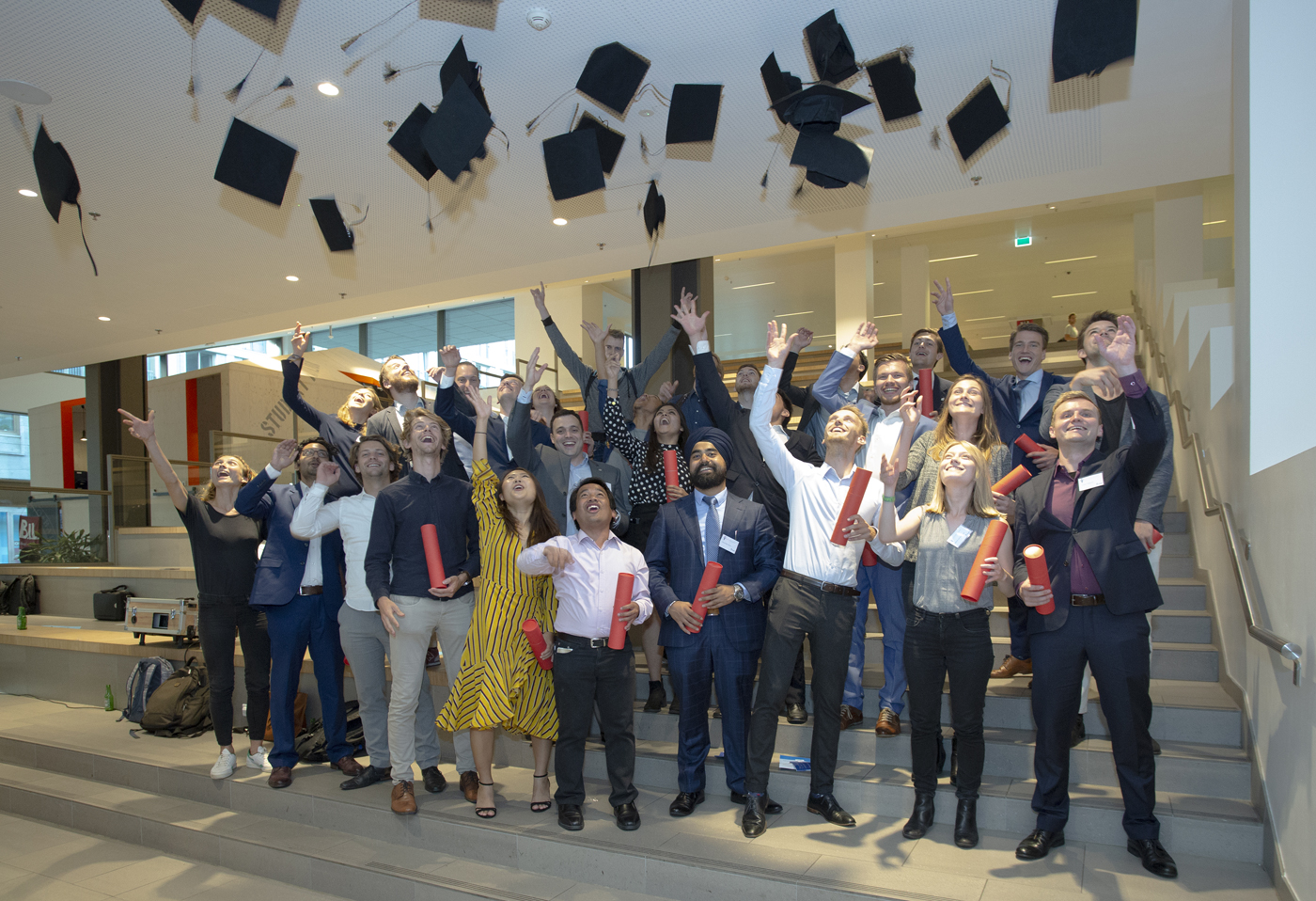“Technical students develop technical solutions. But our policy analysis students test whether these solutions can effectively achieve policy goals,” says Bert Enserink, Director of the Engineering and Policy Analysis (EPA) master. The first batch of 23 students graduated in The Hague last Tuesday.
The list of presentation topics sounds familiar to TU students: water governance, sustainable mobility, energy transition and global development. But, Bert Enserink explains, the approach of EPA students is different. They develop simulations to find out how effective technical solutions can contribute to policy targets. For example, does biofuel help reduce greenhouse gas emissions?
Another branch of the EPA master deals with providing technological underpinning to policies being considered. Enserink mentions the goal of a gasless society by 2050. How realistic is that? According to Enserink, the government doesn’t yet have the engineering plans to underpin this ambitious target.
During the festive thesis conference, 23 students presented their projects. Two students had graduated earlier, making a total of 25 graduates of the EPA master so far. Some 70 students per year sign up for the EPA master. Half of them have a BSc from the TPM Faculty. The other half comes from university colleges, higher professional education, and from abroad.
The EPA master is located in The Hague, in the campus building of Leiden University. Enserink sees the vicinity of ministries, town hall, insurance companies, banks, and numerous international institutions as beneficial. “They start approaching us with realistic topics,” he explains.
The EPA master event closed with presentations by TPM Dean Professor Hans Wamelink and by Saskia Bruines, Alderman of the Municipality of The Hague.
Do you have a question or comment about this article?
j.w.wassink@tudelft.nl


Comments are closed.